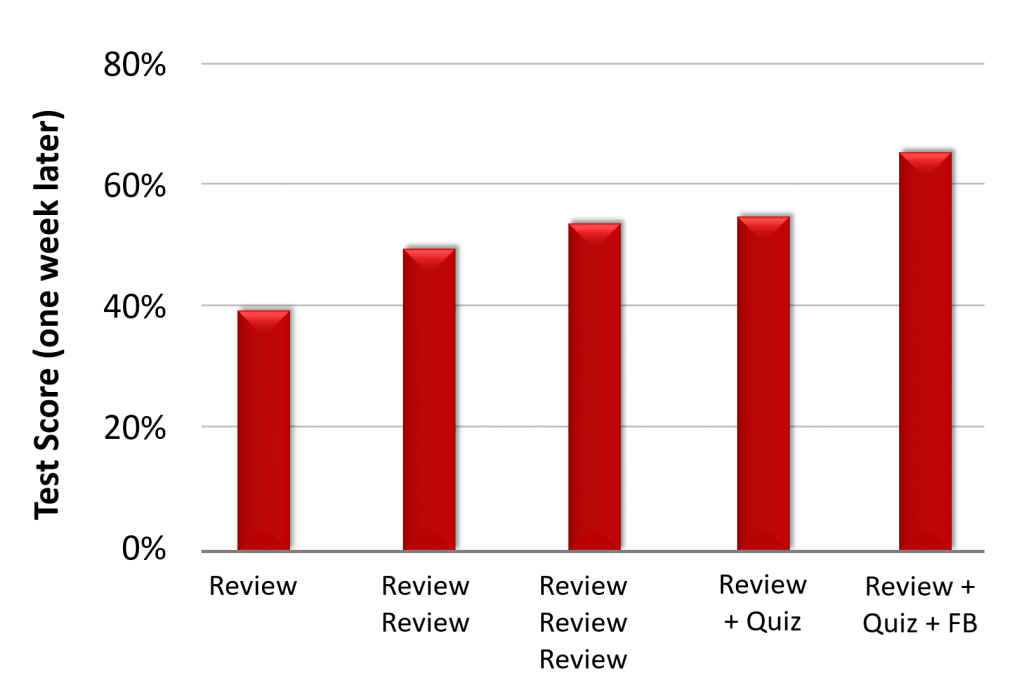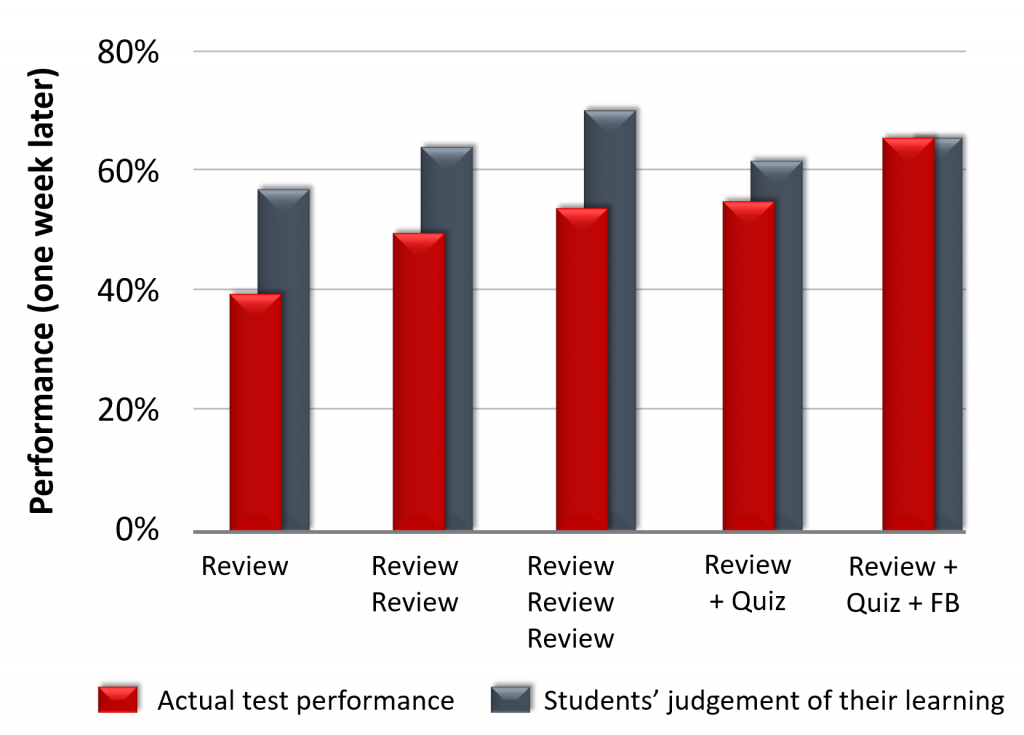Sometimes called retrieval practice or the testing effect, researchers have found that simply recalling information from the brain (as is done during a test or quiz) helps us to better organize and remember it. Consider the chart below adapted from [1] that shows results form a controlled experiment where students wrote a closed-book test one week after engaging in one of five different study approaches:
- Review (x1, x2, or x3): review the materials either once, twice, or three times, respectively
- Review + Quiz: review the materials exactly one time and then immediately write a short quiz, but without finding out performance on the quiz
- Review + Quiz + FB: as above, but this time receiving feedback on which answers were correct and incorrect on the quiz

As shown by the three leftmost sets of bars, the more time students spent reviewing the materials, the better they did on the test one week later, as we would expect. Interestingly, reviewing the materials only one time and then writing a short practice quiz (without feedback) resulted in essentially equal performance on the test the following week as spending three times longer reviewing the materials but without a quiz. The short quiz helped as much as two additional study sessions. When students also received feedback on their quiz performance, they did the best of all, by far. The use of practice testing coupled with targeted feedback is a very power approach to improve student learning.
It goes even deeper than that. When students were asked to judge their learning and to predict how they would do on the closed-book test the following week, the following data was found. The grey bars show students’ judgement of how they would do on the test the following week (i.e., how well they learned the materials they reviewed).

Students who did only review (no quiz) over-predicted their learning by about 15%. With a practice quiz but no feedback on that quiz, students were much better judges of their true learning (over-predicting by about 5%). When students did the practice quiz and received feedback, they were near perfect judges of their learning in these experiments. The use of a low-stakes quiz and feedback not only improved student learning, but also improved students awareness of their learning.
References
- Agarwal, P.K., Karpicke, J.D., Kang, S.H.K., Roediger III H.L., and McDermott, K.B., “Examining the Testing Effect with Open- and Closed-Book Tests,” Appl. Cognit. Psychol. 22: 861–876 (2008)
| Previous (Constructive Alignment) | Next (Rubrics) |
